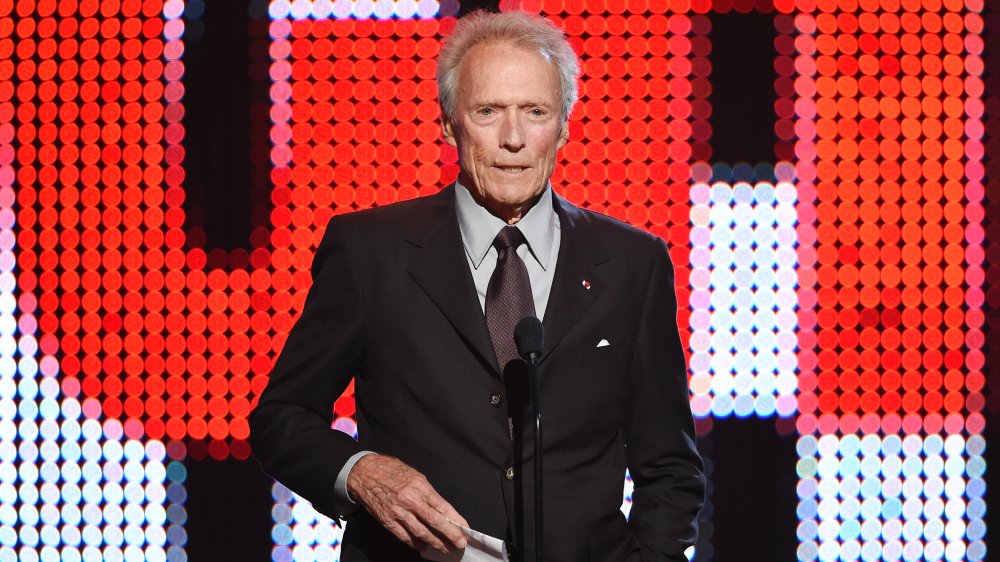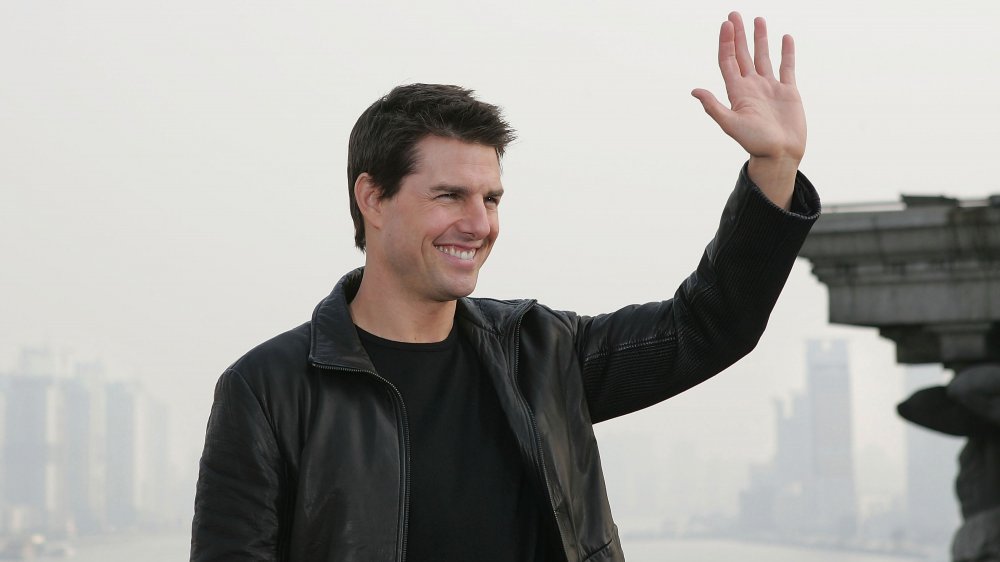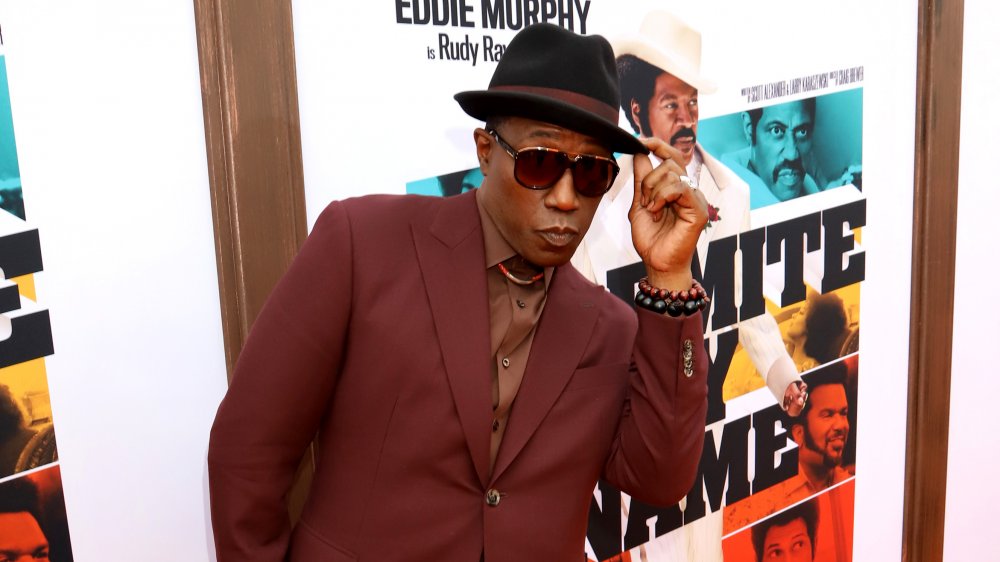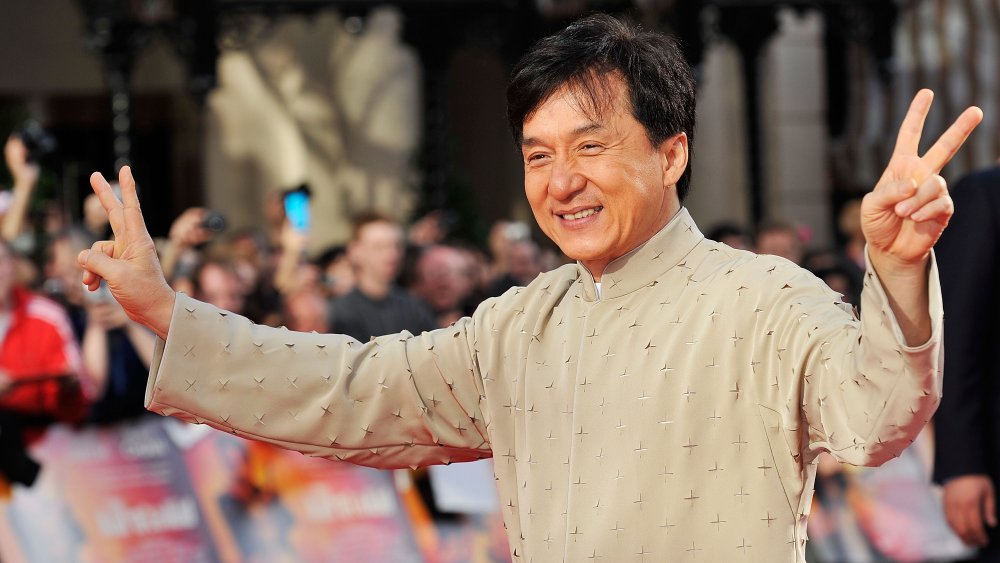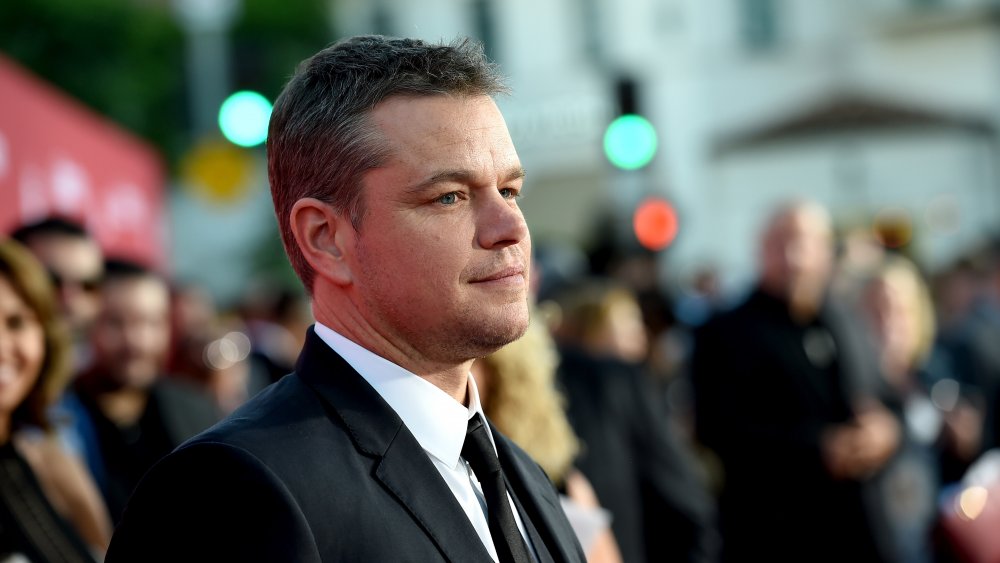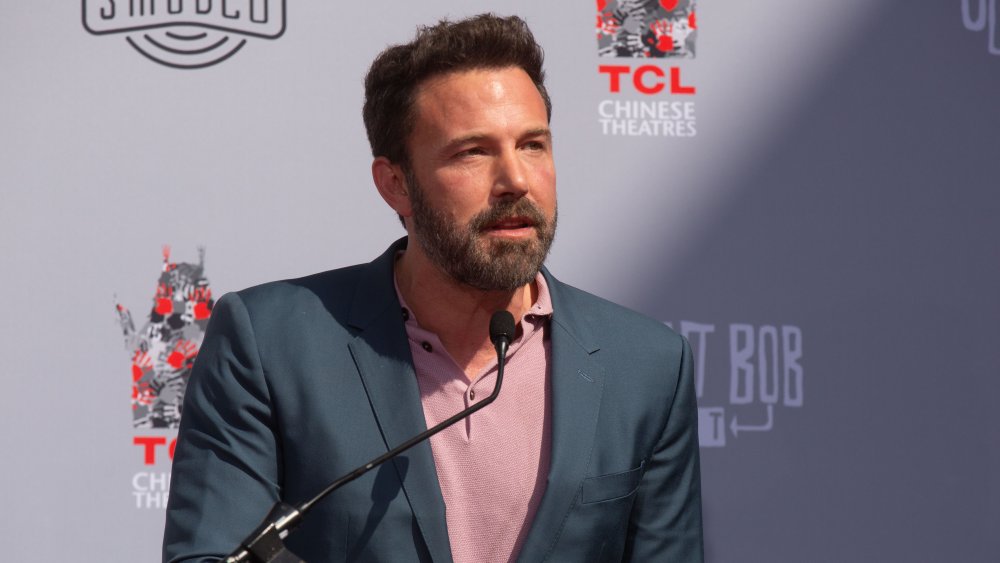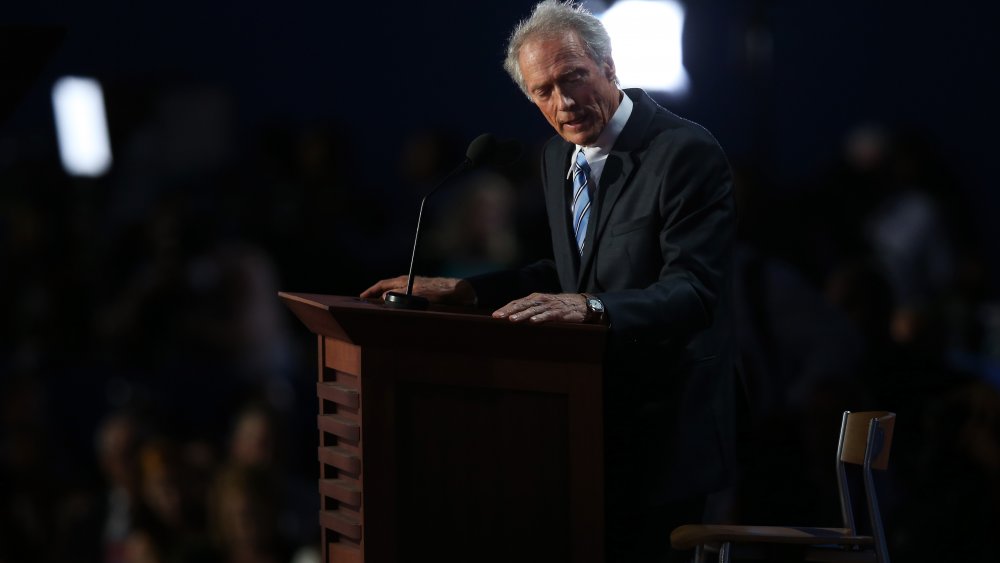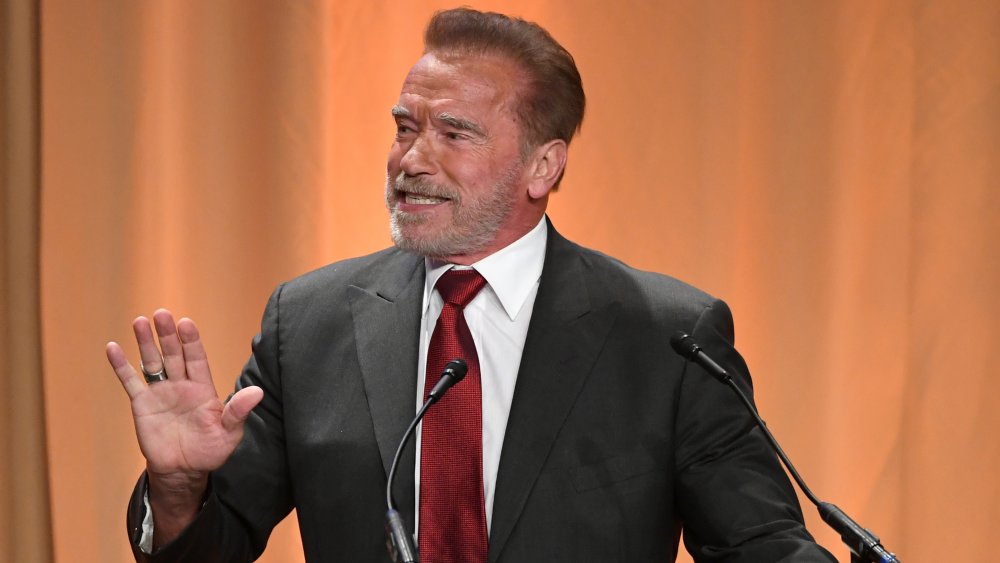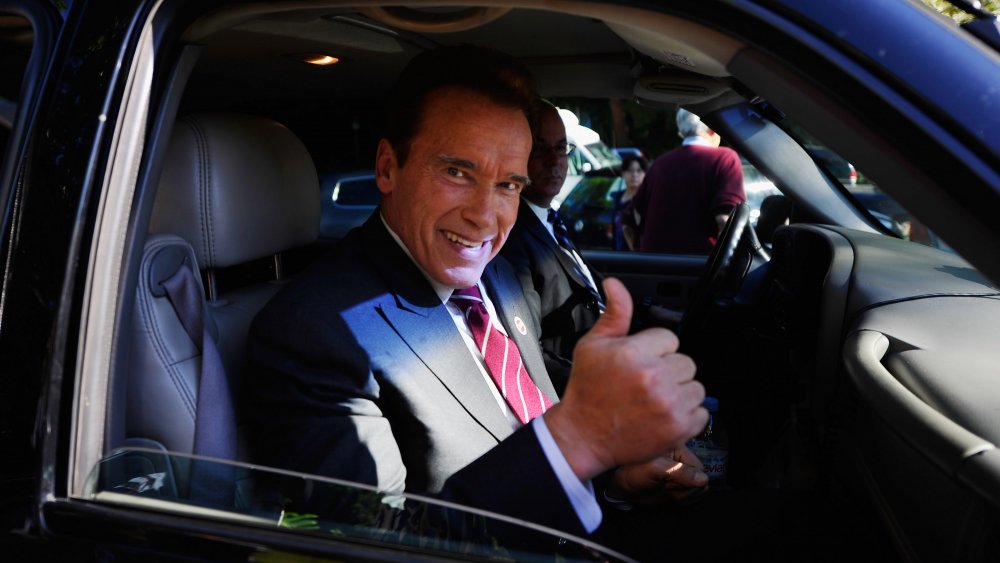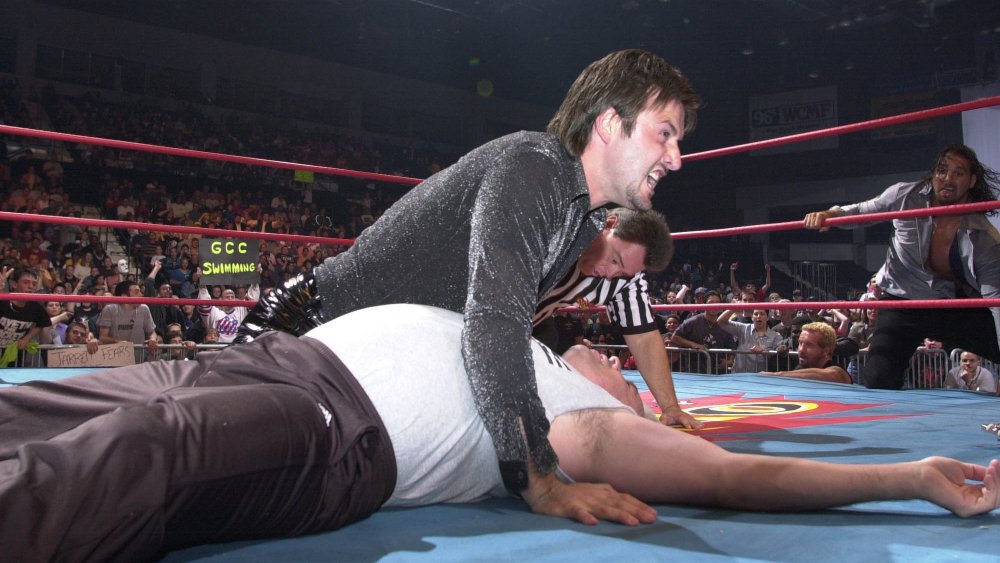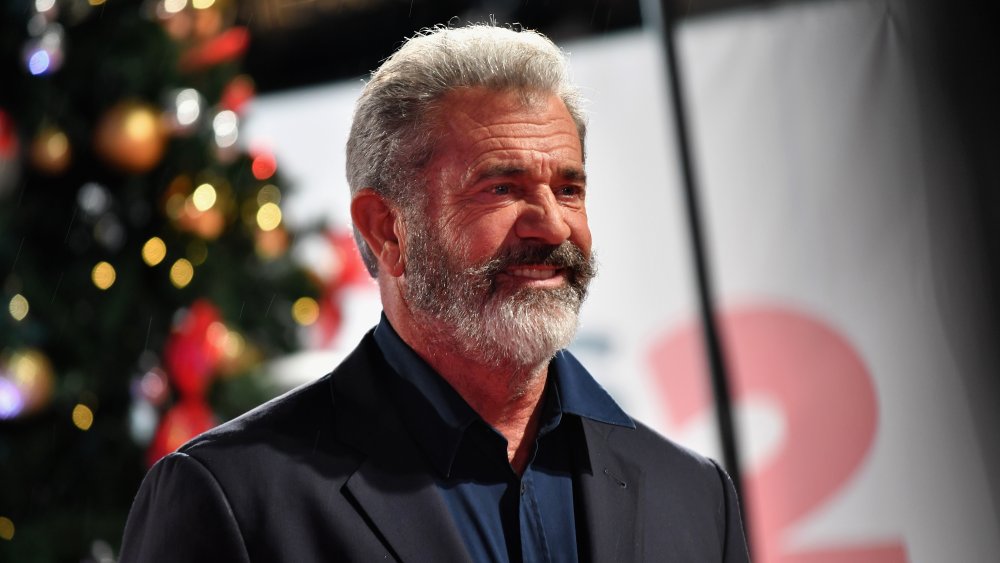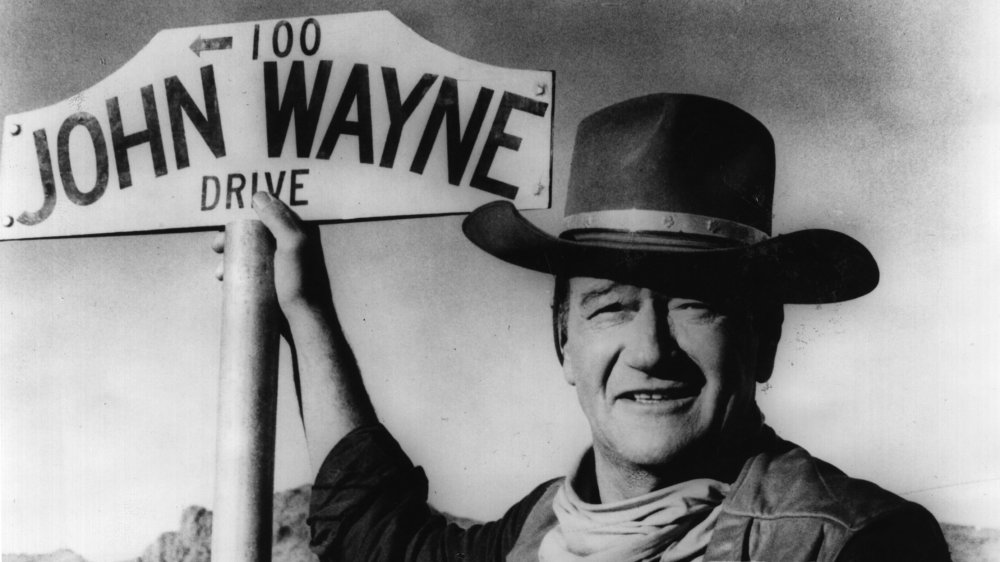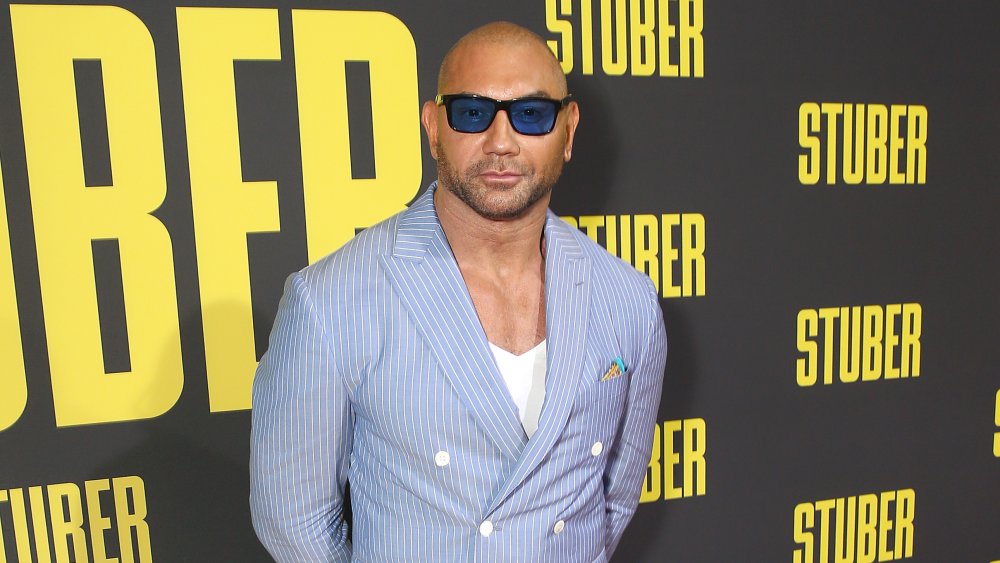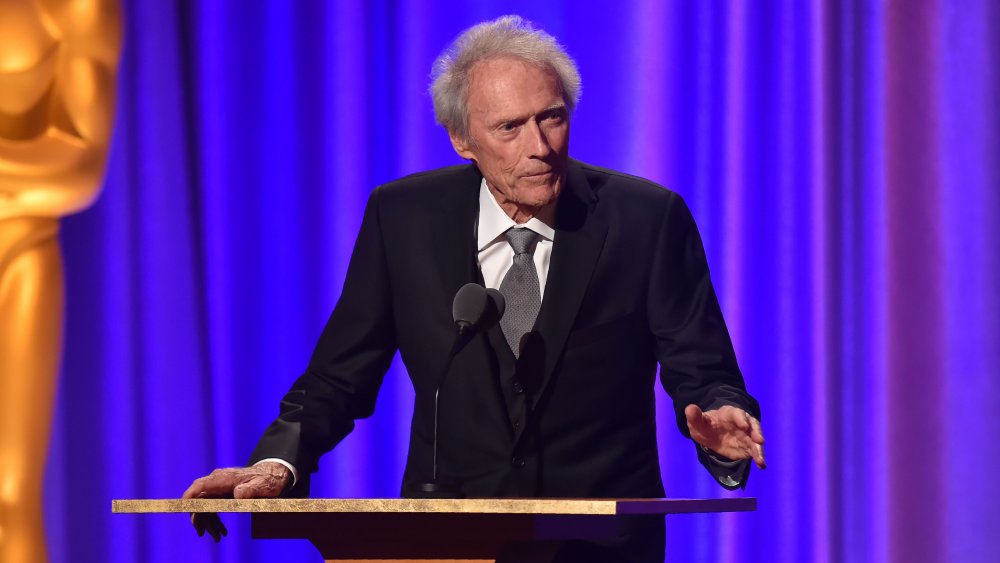Action Stars Who Went Too Far
Action stars may play larger-than-life characters on screen, but they're still people. Acting is just a job and doesn't make them invulnerable — they're capable of having the same problems as the rest of us. Some misspeak, some react in anger, and others just don't understand the world around them. Occasionally they act out of malice, and big personalities can even explode into outright violence.
Doing backflips and karate chops on screen won't stop human problems like addiction or interpersonal conflict. Being big stars, however, means that indiscretions have more public impact. Often these issues have palpable consequences, not just a mild chastising from a publicist. Jobs are put in jeopardy, careers are thrown curveballs, legacies are tarnished. No rescue missions for these action stars — they made their bed, and they have to sleep in it.
To get to the point, sometimes action stars go too far. Here are some notable cases.
Tom Cruise had a very special 2005
Tom Cruise's 2005 was the stuff of celebrity meltdown legends. It was the year he went too far for many and turned his career into a punchline. All because he could — quite literally — not sit down or shut up.
During an interview with Oprah Winfrey, Cruise got manic when talking about how much he loved girlfriend Katie Holmes. This culminated in him jumping on Oprah's couch, a visual that followed him for years. This incident briefly gave birth to the phrase "jump the couch," the celebrity equivalent of jumping the shark. It was so infamous that it was parodied in Scary Movie 4.
After Brooke Shields discussed her use of antidepressants to deal with her postpartum depression, Cruise publicly chastised her. In an interview with Matt Lauer over the subject, Cruise denied the existence of body chemistry and declared, "You don't know the history of psychiatry. I do." When Lauer explained that antidepressants had helped friends, Cruise accused him of being "glib." Cruise (who has no formal medical training) was basing this on Scientology's hostile view of psychiatry. It earned him a rebuke from the American Psychiatric Association.
Wesley Snipes couldn't kung fu the IRS
Wesley Snipes' action stardom is beyond dispute. He has blackbelts in two different martial arts schools, he founded his own movie studio, and he keeps us safe from vampires as Blade. We're starting to think it may not just be an act — given how much he tweets about vampires, he might be saving us from real life bloodsuckers, too.
He's also almost as famous for dodging taxes as he is for being an action star. Between 1999 and 2001, Snipes dodged about $7 million in taxes. He did this by listening to an anti-tax accountant who convinced him that he legally did not need to file taxes. In 2006, after getting indicted, he wrote a 600-page declaration stating that he had no ill will but claimed the government had no authority to impose sanctions on him. This, obviously, did not work.
He was convicted in 2008 and sentenced to three years in prison. He took his case to appeals court, which upheld the sentence in 2010. Snipes spent the next few years in federal prison and under house arrest. He's since returned to Hollywood, and is hopefully a little more careful who he trusts. Vampires aren't his only threat.
Jackie Chan is hated on the Chinese internet
Jackie Chan, from an American perspective, seems immune to controversy. He's a beloved action star who does his own stunts with a history of supporting social causes. How could he have gone too far on anything? For the answer to that, we need to check in on the Chinese internet. Chan is hated in Hong Kong, especially on Weibo, China's microblogging platform.
Chan was born and raised in Hong Kong, but has a habit of siding with the Chinese government. In 2009, while discussing censorship in Chinese media, he worried about people having too much freedom. "If you're too free," he said, "you're like the way Hong Kong is now. It's very chaotic. Taiwan is also chaotic." He suggested that the Chinese "need to be controlled." In 2012, Chan called Hong Kong "a city of protests" where "people scold China's leaders, or anything else they like, and protest against everything."
In August of 2019, Chan weighed in on the anti-extradition protests in Hong Kong. He stated that felt "pride in being Chinese" and that the Chinese flag was respected everywhere. He also hoped "that Hong Kong can return to peace soon." The backlash was quick, with Hong Kong residents none too pleased to see their least favorite celebrity back Beijing once again.
Matt Damon missed the point of #MeToo
In December of 2017, Matt Damon weighed in on the burgeoning Me Too movement in the wake of Harvey Weinstein's long history of sexual misconduct coming to light. Damon stated that there's a continuum of behavior and that certain people like Louis C.K. weren't as big a threat because they learned their lesson after being held accountable.
Many female celebrities expressed disappointment if not anger. Minnie Driver, who co-starred with Damon in Good Will Hunting, responded with frustration. She pointed out that Damon didn't experience harassment on a day-to-day basis like many women in Hollywood. Alyssa Milano said "it's the micro that makes the macro" and that "[t]here are different stages of cancer. Some more treatable than others. But it's still cancer."
Damon apologized for his comments in January of 2018. "I really wish I'd listened a lot more before I weighed in on this," he said. "A lot of those women are my dear friends and I love them and respect them and support what they're doing... but I should get in the back seat and close my mouth for a while."
Ben Affleck tried to hide his ancestors
It seems like Ben Affleck has long been a star people wait for an excuse to hate. If not for his acting, for his personal life. If not for his personal life, for something else entirely. People finally got their wish in 2015 when he went too far and damaged the reputation of a TV show, a network, and a scholar in one fell swoop.
Henry Louis Gates, Jr. hosts Finding Your Roots, a PBS series in which celebrities examine their ancestry. One such episode featured Affleck and many of his interesting relatives, including his activist mother and his third great-grandfather, an occult enthusiast. Perhaps most significantly, one of his ancestors owned slaves — but it was never discussed on the show.
That's because Affleck specifically asked that the segment get spiked. A cache of leaked emails from the 2014 Sony email hack showed as much. Shortly after the episode was shot, representatives for Affleck reached out to Gates and asked him not to include the segment. Gates, in turn, emailed Sony Entertainment CEO Michael Lynton to ask how to proceed.
Around this point, accounts differ. Affleck admitted he was embarrassed about having a slave owner as an ancestor. PBS denied the segment was cut at Affleck's behest. Gates said that the segment wasn't going to be included anyway, since they covered more interesting ancestors. Eventually, after more investigation, PBS pulled the episode and Gates apologized.
Clint Eastwood talks to a chair
The 2012 Republican National Convention faced a fair bit of criticism for being over scripted. Modern political conventions aren't just for formally nominating candidates, they're for spectacle and showing off your vision of America to a primetime television audience. The GOP addressed this by throwing out the script and bringing in a surprise guest: action legend Clint Eastwood. They quickly realized they should have kept that script.
In what was originally pegged as a five-minute prime time speech, Eastwood spoke for 12 unscripted minutes. He spent much of it addressing an empty chair which he claimed held President Barack Obama. The speech was described as rambling at best and disconnected from reality at worst.
Several of his attacks were nonsensical. This included blaming Obama for starting the war in Afghanistan (which was declared when he was a state legislator) and saying that Romney was a better candidate because he was a businessman instead of a lawyer (despite having a JD from Harvard).
Some saw the speech as a publicity stunt. Others saw an old man who lost touch with reality. Members of his own party cringed. A meme was even born — Eastwooding — in which people addressed empty chairs. Eastwood later regretted the speech, saying he wished he phrased it differently. It was too far for many, though, and it's changed the way his work has been viewed since.
Arnie affair
Everything about Arnold Schwarzenegger — the bodybuilder/action star/politician — is outlandish, including his appearance on the Kennedy family tree. He was married to Maria Shriver, niece of John F. Kennedy, for two and a half decades. They had three children together. The marriage meant everything to him. Yet it all fell apart because of his own doing, and he went too far to keep a lie going.
During his initial run for governor of California, stories emerged of Schwarzenegger sexually harassing women over the course of his acting career. He admitted that he behaved badly and apologized. Around this time, rumors emerged that he had fathered a child with someone who worked for him, but the stories never got much play and weren't deemed as credible.
These rumors were confirmed in May 2011. Shriver and Schwarzenegger ended their relationship, and several days later the Los Angeles Times revealed that it was because Arnold confessed to infidelity. He had an affair with his housekeeper, Patty Baena, while his own wife was pregnant with their first child. It wasn't until the boy started looking like him that he started putting things together. He supported both Baena and their son financially in secret until he was confronted.
Schwarzenegger and Shriver's divorce was finalized in 2017. Arnold openly regrets his actions and admits it was one of his biggest mistakes.
Arnold does a big favor
Arnold Schwarzenegger's career arc is a matter of public record but still fundamentally bizarre when written out: 1) world's greatest bodybuilder, 2) youngest ever Mr. Olympia, 3) world famous action star, 4) governor of the most populous state in the union, 5) world famous action star.
Schwarzenegger entered office after the famous California recall election of 2003. He left office with an approval rating of 23% and more than a few accusations of mismanagement. There were also plenty of times he acted outside of his normal boundaries. Of course, governing a state is complicated, and determining "too far" for a politician is subjective — unless, say, a superior court judge says so.
In October of 2008, college student Luis Santos was fatally stabbed. One of the men convicted of the stabbing was Esteban Nunez, son of California Assembly Speaker of the House Fabian Nunez. Esteban plead guilty to involuntary manslaughter in May of 2010, with a sentence of 16 years in prison. On Schwarzenegger's last day as governor, as his last act in office, he commuted Esteban's sentence from 16 years to seven. This breached protocol — neither the victim's family or the San Diego County's prosecutor's office were informed, and only found out via a reporter. Both parties sued the state, stating that the governor violated the victim's family's rights by not notifying them. Schwarzenegger's only public comment on the matter indicates that he commuted the sentence to "help a friend" — namely Fabian.
The judge called the commutation "an abuse of discretion" and "repugnant." However, the court ruled that the commutation was legal, even if distasteful. Jerry Brown, who succeeded Schwarzenegger as governor, signed a bill later to stop similar situations, all because Schwarzenegger took the powers of his office too far. Schwarzenegger later wrote a letter to Santos' family apologizing, which they did not accept.
David Arquette becomes a world champion
David Arquette carved out a solid career in action comedy, with appearances in the original movie version of Buffy the Vampire Slayer and Wes Craven's horror pastiche franchise Scream. He was something of a goofy everyman action-comedy star — nobody would confuse him for a legit tough guy. Nobody, that is, except for a declining World Championship Wrestling.
WCW brought Arquette onto their TV programming to promote Ready to Rumble, a wrestling comedy they produced that bombed. He soon got involved in actual storylines, and against both the odds and good taste, he won the WCW World Championship. A skinny actor with no wrestling experience winning the title was a bridge too far for fans.
Arquette was dead set against his own title reign, but head booker Vince Russo pressured him into it. His brief title reign sank ratings, hurt the prestige of a promotion's main title, and is often cited as WCW's point of no return before closing months later. Years later, Arquette regretted that his time in wrestling was seen as a joke. He started training and now wrestles on the indie circuit, including a notorious match against deathmatch legend Nick Gage. No longer a punchline, his matches draw acclaim and fan support.
Mel Gibson got drunk and tanked his career
Mel Gibson was one of the biggest movie stars of the 1980s and '90s. He was omnipresent, his movies made bank at the box office, he was acclaimed by the critics, and he was People Magazine's Sexiest Man Alive. But it's impossible to tell his story without mentioning the 2006 arrest that saw all of that come crashing down... for a while.
Gibson long had issues with alcohol, once stating that alcoholism runs in his family. On July 28, 2006, Gibson was pulled over in Malibu by a police officer, found to be intoxicated and arrested for DUI. During the arrest, he became belligerent. This culminated with him making sexist remarks towards a female police officer before going on a vicious antisemitic rant. Gibson offered two apologies via his publicist, claiming his comments were "blurted out of a moment of insanity." He apologized to the Jewish community and the Malibu police.
Gibson's The Passion of the Christ had been released not long before this, which itself was controversial for (among other things) its depiction of Jewish people, with the Anti-Defamation League claiming it made them look "bloodthirsty and evil." The arrest caused people to revisit these claims.
Nobody bought his apology. Gibson was more or less blacklisted from Hollywood for nearly a decade, with few prominent roles and no directorial opportunities. He made a directorial comeback in 2016 with Hacksaw Ridge, which started a thaw in his relationship with the movie business.
John Wayne held some extremely racist views
For a time, John Wayne was the biggest star Hollywood had to offer. The leading man of countless westerns for about three decades, he drew box office like no other and picked up some awards in the process. His private views, however, went far beyond "just an opinion" and often into racist territory.
Wayne was an ardent anti-communist and was one of the most visible supporters of the House Un-American Activities committee and Joseph McCarthy. Wayne even played a HUAC agent in Big Jim McLain. He also made The Green Berets, the only major motion picture in favor of the Vietnam War.
In 1971, Playboy interviewed Wayne. The piece saw Wayne make a mess of racist and homophobic statements. "I believe in white supremacy until the blacks are educated to a point of responsibility," he said, before dropping some homophobic slurs discussing Midnight Cowboy. He also supported America's mistreatment of Native Americans, saying that indigenous people had been "selfishly trying to keep [land] for themselves."
These comments caused a minor stir at the time, but were largely forgotten over the years. They resurfaced in March of 2019, understandably causing a firestorm among modern audiences.
Dave Bautista got into a real fight in his WWE days
These days, Dave Bautista is one of the top action stars in the business. His roles in Guardians of the Galaxy and Spectre vaulted him past "former wrestler" and into straight-up "movie star" territory. He's also an advocate for positive masculinity, saying that "it's okay to be nice" and that violence isn't always necessary. This would be a shock to Batista, the character he played in the WWE, who once got into a legit backstage fight for being arrogant and disrespectful.
By this point, Batista was arguably in the prime of his wrestling career. He was a main eventer, closed out Wrestlemania 21, and held the World Heavyweight Title for almost 300 days before getting injured. He also had an attitude backstage that rubbed people the wrong way, especially veterans. One such veteran was Booker T, who confronted Batista during a photoshoot for SummerSlam 2006 about his attitude. The result was a real life, unscripted fight between the two men. They exchanged real blows before getting separated.
Accounts differ as to who won the scuffle. Booker said that Batista "took a good beating, but he's a man." Most dirt sheets indicate that Booker won, or at least put up a more impressive showing. Backstage producer Fit Finlay said Batista had the better of Booker until they got separated, but he did no-sell a kick to the groin by Booker's wife Sharmell.
Years later, Booker said the fight was mostly the result of a testosterone-fueled disagreement. Outside his wrestling personality, Bautista acknowledged that he hadn't showed the proper respect to Booker and regretted it. They've since made up, and both parties admit they went too far, even if it felt necessary.
Clint Eastwood cheated on Sondra Locke in more ways than one
Clint Eastwood was in a relationship with Sondra Locke for about 13 years, until their partnership ended in nasty fashion in 1989. Part of the problem (in addition to Eastwood's infidelities) was that she wanted to direct her own movies without his influence. She filed a palimony suit against him, which was settled in 1990 with an agreement — she'd get a three-year $1.5 million deal with Warner Bros. to help her develop movies. Eastwood went too far here — the deal wasn't real.
During those three years, Locke proposed around 30 movies, and every single one of them was turned down. Realizing that the deal was a sham, she filed two lawsuits: one against Eastwood and one against Warner Bros. She claimed that her former partner had defrauded her, and that the studio had conspired with him to end her career.
The suit with Eastwood was settled for an undisclosed sum in 1996 just before the jury was ready to find in Locke's favor. Eastwood was a material witness at the Warner Bros. trial, which was also settled out of court.
